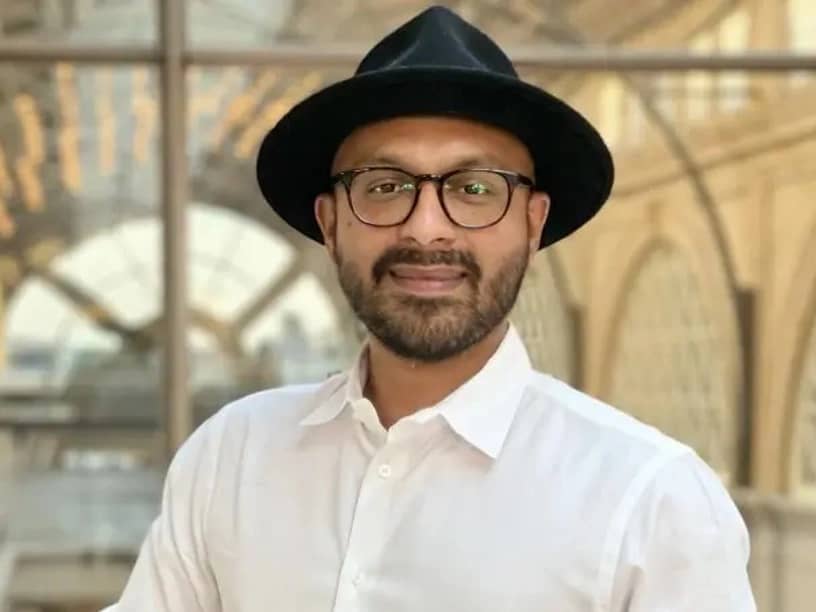위키 구독하기
Share wiki
Bookmark
Greg Osuri
0%
Greg Osuri
그렉 오수리는 기술 기업가이자 Akash Network의 CEO입니다. 그는 블록체인 및 클라우드 컴퓨팅 분야, 특히 Akash Network를 기존 클라우드 서비스에 대한 비용 효율적이고 분산된 대안으로 개발하고 홍보하는 데 기여한 것으로 알려져 있습니다. [1]
경력
그렉 오수리의 첫 직장은 2004년 5월부터 2006년 6월까지 글로벌 IT 서비스 회사인 Miracle Software Systems였습니다. 그는 네트워크 설계 및 유지 관리를 담당하는 기술 아키텍트 직책을 맡았습니다. [6]
2006년 6월부터 오수리는 그레이터 내슈빌 지역의 IBM에서 컨설턴트로 근무하며 중요 인프라 및 서비스 지향 아키텍처(SOA) 컨설팅에 집중했습니다. 2년 동안 자동차, 물류, 의료 및 통신과 같은 분야를 전문으로 다루며 Verizon Wireless, Sprint, Blue Cross Blue Shield, WebMD 및 JP Morgan Chase와 같은 주요 고객을 담당했습니다. [6]
이후 2008년 3월에 그레이터 내슈빌 지역에 SBILabs Corp를 설립했습니다. 창립자로서 약 1년 7개월 동안 클라우드 인프라 개발 및 운영 전략에 기여했습니다. [6]
2008년 5월, 오수리는 샌프란시스코 베이 지역의 Kaiser Permanente에서 인트라넷 포트폴리오의 아키텍트(컨설팅) 역할을 맡았습니다. 그의 책임에는 의료 기관 내의 아키텍처 컨설팅이 포함되어 인트라넷 포트폴리오에 기여했습니다. [6]
2009년 9월에 Gridbag으로 전환한 오수리는 약 1년 9개월 동안 창립자 겸 엔지니어링 부사장으로 근무했습니다. 이 직책에서 그는 회사의 엔지니어링 리더십 및 개발 노력에 중요한 역할을 했습니다. [6]
2011년 5월부터 2013년 1월까지 오수리는 샌프란시스코 베이 지역의 Marketron에서 수석 아키텍트로 근무하며 아키텍처 설계 및 전략에 기여했습니다. [6]
2011년 11월, 오수리는 AngelHack을 설립하여 1년 9개월 동안 창립자 겸 CTO로 근무했습니다. AngelHack은 50개 도시에서 50,000명 이상의 개발자를 보유한 글로벌 개발자 생태계가 되었습니다. 또한 오수리는 전 세계적으로 분산된 해커톤 운영의 물류 복잡성을 관리하도록 설계된 도구 모음인 hackathon.io를 만들었습니다. [6]
2015년 6월, 오수리는 Akash Network의 제작자인 Overclock Labs를 설립했으며 현재 창립자 겸 CEO로 재직 중입니다. 그 이후로 그는 클라우드 컴퓨팅 리소스를 사고 파는 피어 투 피어 마켓플레이스를 구축하고 고도로 분산된 애플리케이션에 최적화된 배포 플랫폼을 개발하는 데 회사를 이끌었습니다. [6]
Akash Network
2018년, 그렉 오수리와 애덤 보즈니치는 Akash Network에서 함께 작업하기 시작했습니다. Akash Network는 개방적이고 분산된 클라우드 컴퓨팅 마켓플레이스입니다. 그의 비전은 컴퓨팅 리소스를 위한 글로벌 마켓플레이스를 만들어 클라우드 컴퓨팅을 민주화하여 사용자가 피어 투 피어 방식으로 서버 용량과 클라우드 서비스를 공유하고 액세스할 수 있도록 하는 것이었습니다. Akash Network는 Amazon Web Services(AWS), Microsoft Azure 및 Google Cloud Platform과 같은 기존 클라우드 제공업체에 대한 비용 효율적인 대안을 제공하는 것을 목표로 합니다.[4]
기여 및 영향
그렉 오수리의 리더십 하에 Akash Network는 블록체인 및 클라우드 컴퓨팅 분야에서 상당한 주목을 받았습니다. 그는 클라우드 컴퓨팅 산업 내의 중앙 집중화 및 비용 비효율성 문제를 해결하기 위해 자신의 플랫폼을 사용하여 분산되고 비용 효율적인 솔루션을 제공합니다. 그렉은 자주 연사로 등장하며 캘리포니아 최초의 블록체인 법안(AB 2658) 통과에 중요한 역할을 했으며 상원에서 최초의 전문가 증언을 제공했습니다. 그의 증언에서 그는 다음과 같이 말했습니다.
블록체인 기술은 아직 초기 단계에 있지만 상업에 대한 잠재적 영향과 이점은 월드 와이드 웹 자체에 필적합니다. 그리고 웹 기술과 마찬가지로 캘리포니아는 혁신의 최전선에 있습니다. 우리는 이 혁신이 끊임없이 증가하는 속도로 진행됨에 따라 소비자를 보호하고 교육하는 데 있어 입법부의 리더십에 감사드립니다.
제 생각에는 UETA의 "전자 기록" 및 "전자 서명" 정의를 블록체인 기술을 통해 보호되는 기록 또는 서명을 포함하도록 확장하는 것은 당연합니다. 왜냐하면 블록체인은 본질적으로 변경 불가능하고 감사 가능하기 때문입니다. 즉, 기록이 블록체인에 기록되면 영원히 거기에 있으며 변경할 수 없으며 체인에 액세스할 수 있는 모든 사람이 볼 수 있습니다. 블록체인은 해킹할 수 없는 데이터베이스입니다.
또한 암호화를 사용하여 보안이 내장되어 있습니다. 공개 키로 기록에 서명하면 블록체인에서 변경할 수 없이 나에게 귀속됩니다. 이는 암호화 키가 실제로 키 쌍이기 때문입니다. 즉, 모든 사람이 볼 수 있는 공개 키는 나만 볼 수 있는 개인 키와 수학적으로 연결되어 있습니다. 따라서 악의적인 행위자는 내 개인 키가 내 컴퓨터를 떠나지 않기 때문에 데이터베이스를 해킹하여 내 비밀번호를 훔칠 수 없습니다.
그러나 스마트 계약에 대해서는 주의를 기울이는 것이 좋습니다. 서면 계약은 이해하기 어려운 경우가 많지만 적어도 이론적으로는 사람이 읽을 수 있습니다. 반면에 스마트 계약은 컴퓨터 코드로 작성됩니다. 전문 소프트웨어 엔지니어로서 다른 사람의 코드를 이해하기 어려울 수 있으며 일반인이 그렇게 할 수 있는 능력은 말할 것도 없습니다. 물론 코드에는 의도하지 않은 동작을 유발하는 버그가 있는 경우가 많습니다. 결과적으로 사람이 자신 또는 계약 발급자가 완전히 이해하지 못하는 조항이 있는 스마트 계약에 참여할 위험이 더 큽니다. 제 생각에는 스마트 계약에 관한 법률은 이러한 중요한 특성을 고려해야 합니다.[5]
잘못된 내용이 있나요?
